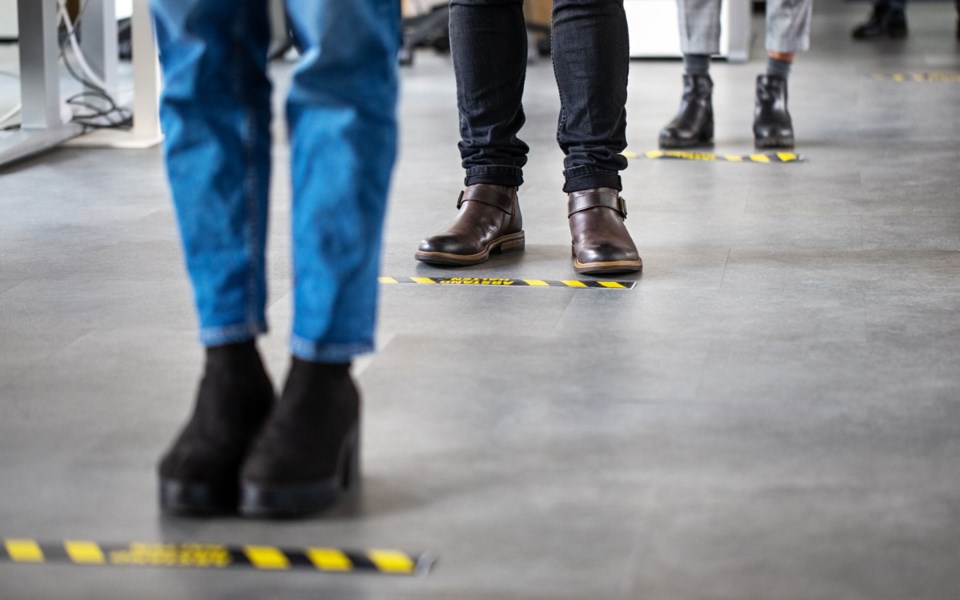It is true: We are entering the second year of the coronavirus pandemic.
This week in 2020, we at Pique were talking about working from home; we were talking to our IT people about how to produce a newspaper, a team-based activity, from our kitchen tables; we were starting to understand that tens of thousands of people in Canada were going to die. We had to come to grips with the fact that even those we trusted with our health did not know how to combat this foe—and it was going to be combat. This was going to be war.
It’s hard to imagine that just over 12 months ago, Canada’s top doctor, Dr. Theresa Tam said: “The risk of an outbreak in Canada remains low.”
And we believed her.
We believed it when we were told there was no real reason to wear masks. We believed it when we were told it was OK for international flights to continue in reduced numbers, that it was OK to travel—though not an “advised” activity.
What were we thinking? What are we still thinking?
Now we are holding on, as we are being told that the vaccines will have everything back to normal this year.
But I’m sorry, things will never be the same again. It may be a fatuous example, but honestly, do Google and Apple’s open-plan, games-room, couch-filled living room offices still seem like a good idea? I don’t think so. I’m pretty sure the high-sided cubicle is making a comeback.
And I also think mask-wearing is here to stay in places where people are confined in busy locations, like shopping malls, grocery stores and so on (let’s think about the incredibly low rates of flu this year thanks to our hand-washing and mask-wearing).
Working remotely is also here to stay and will, in the long-term, radically alter the idea of city centres.
And tourism is forever changed. I could be wrong, but I don’t think people will want to crowd scores deep into the Sistine Chapel anymore, or pack into Disneyland in the same way. I think people will continue to want wide, open spaces, places where we can breathe deeply and stretch without feeling anxious.
We will want restaurants that are not like home, places that we can “escape” to—and open kitchens demonstrating hospital-level hygiene will get nods of approval from patrons. And I would predict that printed menus, individually packaged ketchups (etc.), copious paper napkins and perhaps even the use of cash will stay in the past.
I also believe in First World countries that we have an appreciation for farmers, food-industry workers, those in healthcare and various other front-line workers in a way that has never existed before. We have an inkling of how hard it actually is to grow enough food for a family, to look after sick family members—we have new respect for human labour.
And I want to desperately believe that as a nation we have learned lessons about the care of our elders and seniors.
In Canada, and elsewhere, we have also been staggered by the ability of our governments to plan and spend money when our nation is threatened. Leaving aside for the moment any criticism of the rollout or effectiveness of programs, let’s think about the fact that it’s getting done.
Can we focus on this lesson for the near future and imagine these forces for good being pivoted (can’t believe I just used that word!) to support the changes we all need to make to face the climate crisis? Could this be one of the most important realizations to come out of the war on COVID-19—that we could do this?
Something else that is abundantly clear with hindsight is that you can’t win a war like this by the seat of your pants. Canada did have plans put in place following the SARS and H1N1 virus outbreaks in the past, but it feels like we were all operating on a “this-can’t-possibly-happen-to-me” mentality. It’s like we were operating with a teenage brain. That is no longer the case.
And a question worth exploring going forward—because, let’s be honest, this is not going to be the last pandemic we face—is whether Canada needs to consider how it manufactures its own vaccines in the future.
Canada has vaccinated a smaller percentage of the population than about 40 other countries, with just three per cent of Canadians having received at least one shot as of Feb. 9, compared with 13.1 per cent in the U.S, 19.4 per cent in Britain and world-leading Israel at 67.4 per cent.
Are we too reliant on the federal National Research Council facilities for our vaccines? Is it time to partner with private sector to make sure this vulnerability is addressed?
No doubt there are a thousand other lessons from the pandemic each of us has learned so far.
For me, my greatest lesson? It is the realization that it’s the people in my life that make it worth living, not things or even experiences. I can’t wait to hug those I care about.
What about you? What are your lessons?




